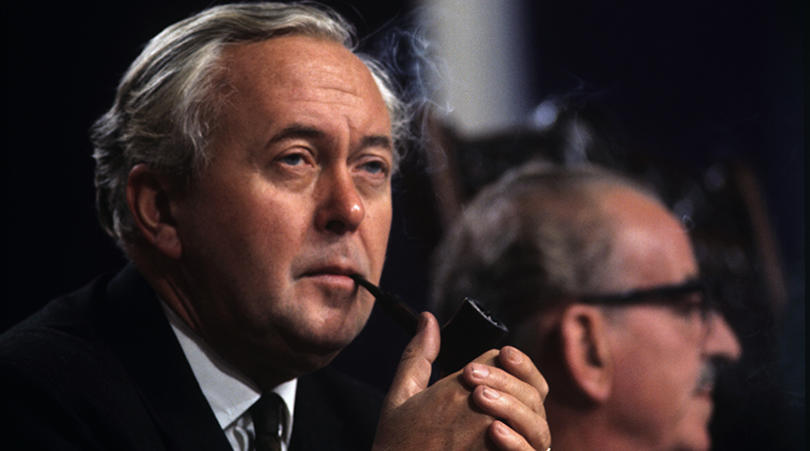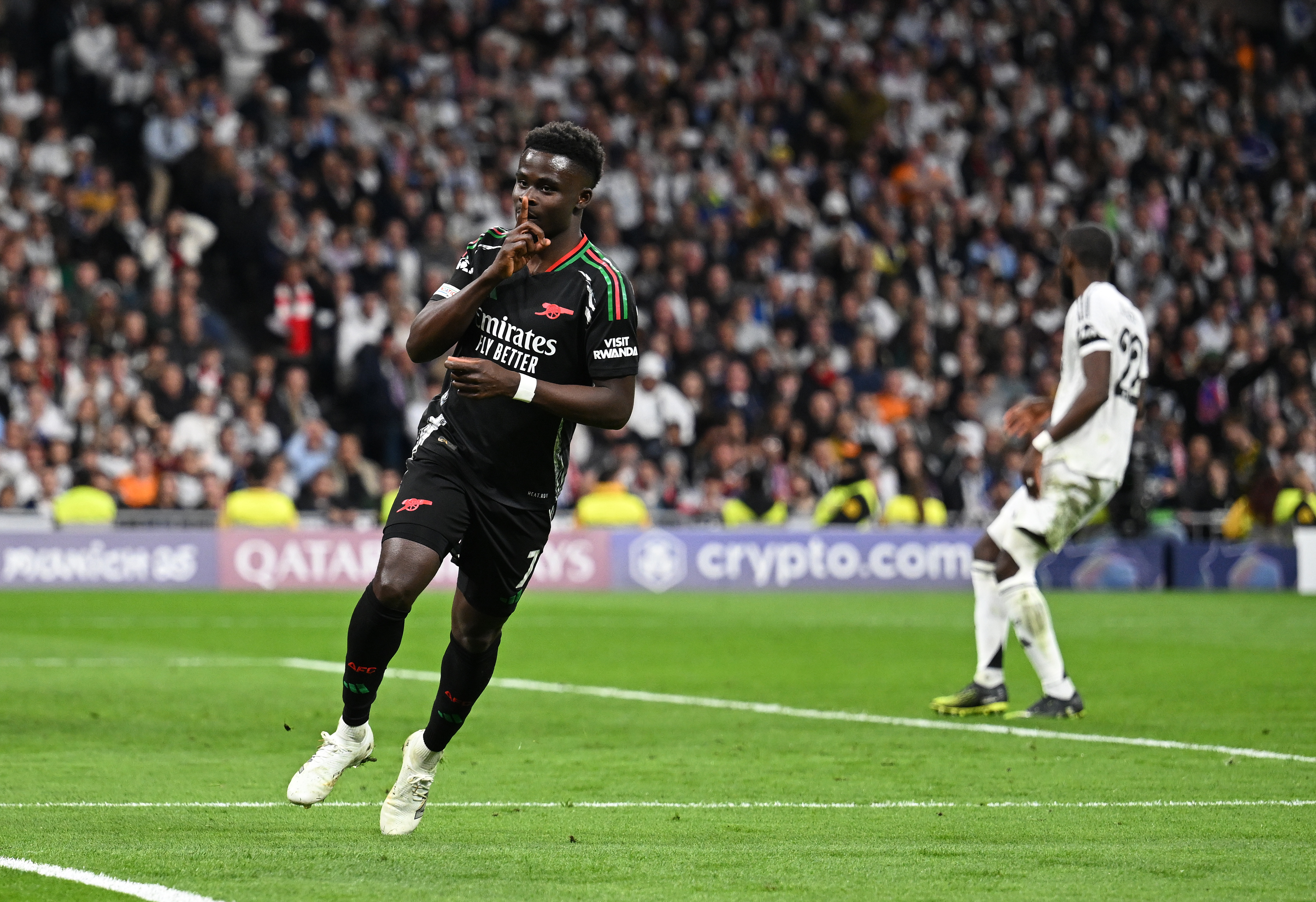What will Brexit mean for football? Transfer trouble, FA joy... and chaos in Football Manager
Will Brexit deliver a golden age in British youth development or kickstart the decline of the Premier League? Huw Davies finds out
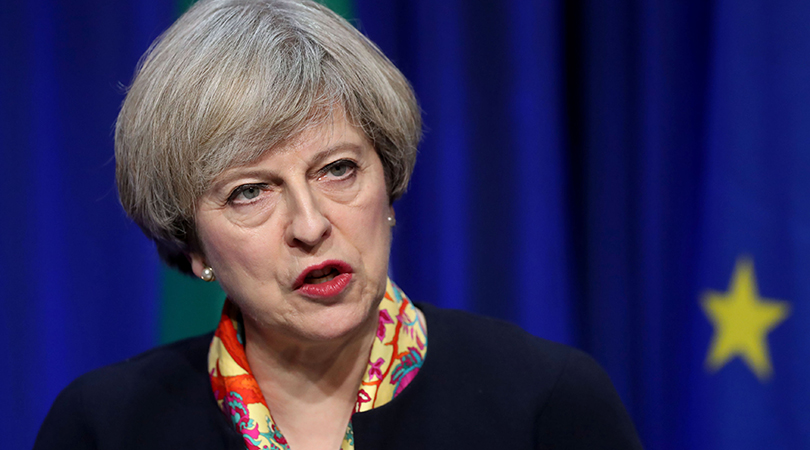
The year is 2015. The scene: a large, yet stuffy meeting room. On one side of a desk sits a panel of FA bods in intimidatingly smart suits, who decide whether to approve a foreign player for a work permit from the Government.
On the other side of this desk sit the supplicants: a Premier League club seeking a permit for their prospective new signing. And outside this room, an alternative universe in which the United Kingdom had left the European Union years ago.
“So, this player’s French, is he? Has he played in 45 per cent of France’s competitive matches over the past two years?”
“Not quite, no.”
“How many’s he played?”
“Approximately none.”
“I see. Has he played in the Champions League?”
Get FourFourTwo Newsletter
The best features, fun and footballing quizzes, straight to your inbox every week.
“No, he’s just completed his first top-flight season.”
“Right. In that case, we cannot grant you a Governing Body Endorsement under Tier 2 of the Home Office Points Based System.
Go and buy somebody else.”
“But...”
“You can easily find a British midfielder who’s just as good. Who even is this guy? No one’s ever heard of... N’Golo Kante.”
This is a scene that could be commonplace after the real Brexit in this real universe.
An uncertain world
Admittedly, the reality is a lot less dramatic. There are no stand-offs in large, yet stuffy meeting rooms. Nobody knows for sure if the UK’s departure from the EU will result in British work permit rules being the same as they are now for players from nations outside the European Economic Area, or the EEA (more on that to come later). And Kante could well have been granted entry after appeal.
It’s far from certain, however, that the PFA Player of the Year could have joined Leicester City under Brexit rules. As for the previous winner, Riyad Mahrez, recruited from the French second division – forget about it. And what of Kante’s current Chelsea colleagues? Well, wave goodbye to Marcos Alonso, Cesar Azpilicueta and a few more.
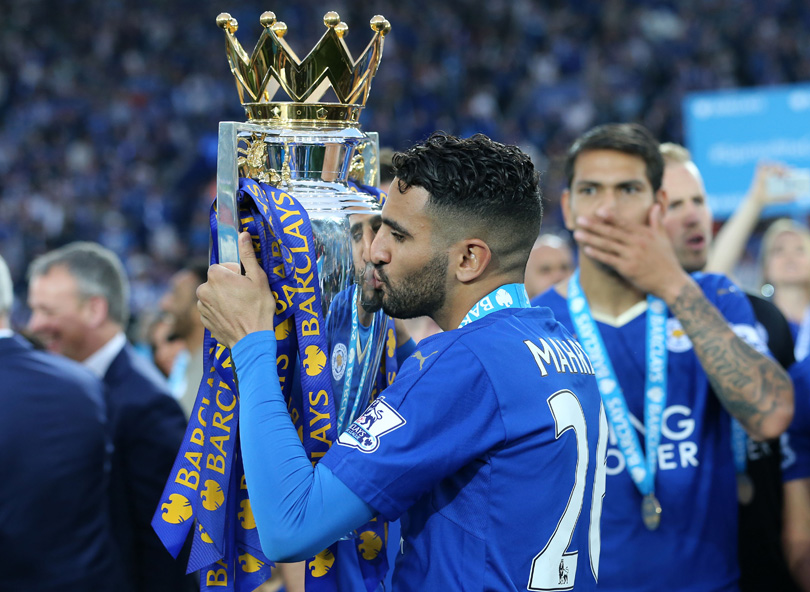
Yet FourFourTwo can reveal that the footballing fallout from Brexit potentially goes much further. Discussions have been dominated by fears foreign stars may stop flocking to the Premier League, but that is only one scenario. Hiring backroom staff may become a nightmare, or a financial crisis could cause lucrative television deals to implode. Alternatively, there’s a chance England could become a half-decent team once again. Anything’s possible.
If every EU footballer currently in the Premier League applied for a work permit tomorrow, then 75 per cent of them would initially fail
Brexit could play out in an almost infinite number of ways. The most significant changes to trade and immigration would likely come in the event of ‘hard Brexit’. This has prompted a mixture of intrigue, excitement and sheer bloody terror. The UK is currently bound by laws allowing freedom of movement for workers in the EU, which is why Nigel Farage wakes up each morning in a cold, beery sweat.
That’ll change when prime minister Theresa May exercises the UK’s freedom of movement from the EU. Many people predict that Britain-bound players from the 30 other EEA countries (every EU nation as well as Norway, Iceland and Liechtenstein) will need to meet the same requirements for a work permit as other imports.
These requirements are tough, too. If every EU footballer currently in the Premier League applied for a work permit tomorrow, then 75 per cent of them would initially fail. Don’t panic: no one will be forced to leave. But take this sample as a basis for future transfers and you lose 121 of the 164 players coming in. And down in the Championship, just three of the 161 EU players meet the criteria: two Irishmen and Romanian Reading winger, Adrian Popa.
Why? Because in 2015 the FA tightened regulations on non-EEA players, and before they’ll endorse one for a work permit from the Home Office, they measure his country’s aggregated FIFA ranking over two seasons – FIFA rankings a famously accurate indicator of quality – and calculate his importance.
If the player represents a top-10 nation, appearing in 30 per cent of competitive internationals over two years is enough – but that would see off Leroy Sane, Juan Mata and Emre Can, among many others, if EU footballers also faced this test.
Players from worse nations must play more games: 45 per cent for those ranked 11-20, continuing down to the point where Swansea’s Martin Olsson wouldn’t qualify having appeared in 73.3 per cent of Sweden’s competitive matches, but not the required 75 per cent. Maths is a harsh mistress.

Maria Patsalos is a partner with the London-based law firm Mishcon de Reya and advises clubs about the immigration law.
The FA’s rules are strict, she confirms. “One player’s national team failed in a tournament and we knew that the next day they would drop down a ranking and fall into a different band, and therefore the player wouldn’t be eligible to apply. We worked up until midnight to get the application in first.”
Tougher rules
The appeals process has also moved beyond a simple: “Oh go on, please”. Before the FA’s rule change, 79 per cent of appeals would be successful, with their then-chairman Greg Dyke complaining they were “reliant solely on subjective supporting evidence”. What Patsalos calls “the smoke-and-mirrors approach” has been replaced by a points system – with more points distributed if the transfer fee and the wages of the player are particularly high. This means that after Brexit, a club could theoretically overbid for a new EU signing, and overpay him, just to ensure he gets a work permit.
Furthermore, British clubs are currently able to sign 16- and 17-year-old players under the EU’s freedom of movement – Cesc Fabregas, Paul Pogba and Hector Bellerin three examples – but Brexit would soon scupper that. “What happens to those lost junior players?” asks Patsalos, rhetorically. Presumably they have to wait another two years or sign for someone else.
March 29, 2019 looks like it could be British football’s Judgement Day – so will we start to see clubs load up on EU players in the January transfer window preceding it?
“It would not surprise me if over the next 18 months you find players being brought in on much longer contracts,” says Frank Dunne, chief sports writer for the SportBusiness Group. “They could be stockpiled on the basis that once they’re in, it’s much harder to get rid of them.”
I think there’s a lot of fear among Premier League clubs, and quite rightly
Daniel Geey, partner in the sport group at media law firm Sheridans, agrees that could “potentially” happen but also adds: “There is the risk that you make a large investment in EU players, but then on expiry or renegotiation of their contract, they have to jump through much tighter hoops, which may devalue the players.” It’s as the fine print always says: “The value of your investment may go down as well as up.”
Dunne tells FFT: “I think there’s a lot of fear among Premier League clubs, and quite rightly.” And what of the Premier League itself? Wouldn’t its carefully curated global image suffer if fewer top players graced what West Ham United co-owner David Gold last year called ‘the greatest league the world’s ever known’?"“If there was a palpable loss of quality, that’d have an impact – but that would work through very slowly,” Dunne explains. “The Premier League brand is so strong that it would be three, six, maybe nine years before there was any discernible impact on media rights values. Clubs will still be able to bring in the top European players, and they drive all of the interest. With respect, I don’t really think it’s Ander Herrera who is selling Manchester United’s popularity across the world.”
If damage is done to the economy, that’s likely to impact on the TV sector – Sky and BT – and they’re the financial underwriters of not only the Premier League but British football in general
“It has got that intangible external image,” says Raymond Boyle, who is Professor of Communications at Glasgow University, researching in media and sport. “You’d think it would be political madness to do anything that could scupper that.
"What isn’t being talked about is the bigger picture. If Britain leaves the EU and damage is done to the economy, that’s likely to impact on the TV sector – Sky and BT – and they’re the financial underwriters of not only the Premier League but British football in general.
“Loads of sectors are affected if the economy goes into difficulty. Football is not necessarily immune from that. People need money to watch games and pay for their subscriptions, which are likely to be incrementally going up when people’s real incomes are likely to be going down."
“Also, advertising tends to be one of the first things that’s cut back on in an economic downturn. BT’s new contract to show the Champions League [from 2018-19] cost £1.18 billion and they’ll have to get the cash from somewhere.”
Perhaps the EU could arrange to have a whip-round.
A hard Brexit will force Football League clubs to buy local
“Technically speaking,” Boyle explains, “a UK that’s ‘independent’ – in inverted commas – from the EU can make up its own rules. The likelihood of that would be graded employment rules for the EU players and more stringent rules for the non-EU players.” Patsalos adds there could be “something in between” current freedom of movement and the harsher rules that apply for everyone else.
David Gold complained Brexit had already made foreign signings pricier, after West Ham’s failed Michy Batshuayi bid rose by £3 million in a week
Fair and equal, it ain’t: clubs would still have to pay larger fees due to the aforementioned points system and weak pound. David Gold complained Brexit had already made foreign signings pricier, after West Ham’s failed Michy Batshuayi bid rose by £3 million in a week as sterling’s value against the Euro dropped even deeper than a Jose Mourinho defence. But a more EU-friendly rule would make life easier, and Football League clubs would be especially thankful.
Championship squads will take a hit if a hard Brexit means only the established international players can receive a work permit. Brentford’s metrics-based Moneyball methods have seen the Londoners sign a dozen cut-price Europeans who aren’t close to picking up a cap. That’s impossible without the EU freedom of movement.
“Non-EEA players don’t appear in the lower leagues due to the criteria that’s applied,” says Geey. “If everyone’s under those same regulations, the make-up of squads would revert to those who easily qualify to work in the UK.
“Even if there’s a halfway house where the clubs have to make applications for EU workers, they will not have massive resources available to do it. At the moment they can rely on buying a Spanish player just by making sure he’s got a legitimate Spanish passport.”
Anything but a silky-soft Brexit will force Football League clubs to buy local. Geey adds, however: “I think one impact will be that British players will go up in value, because unless a streamlined process is in place, there will be a long and drawn-out process for literally any foreign player.”
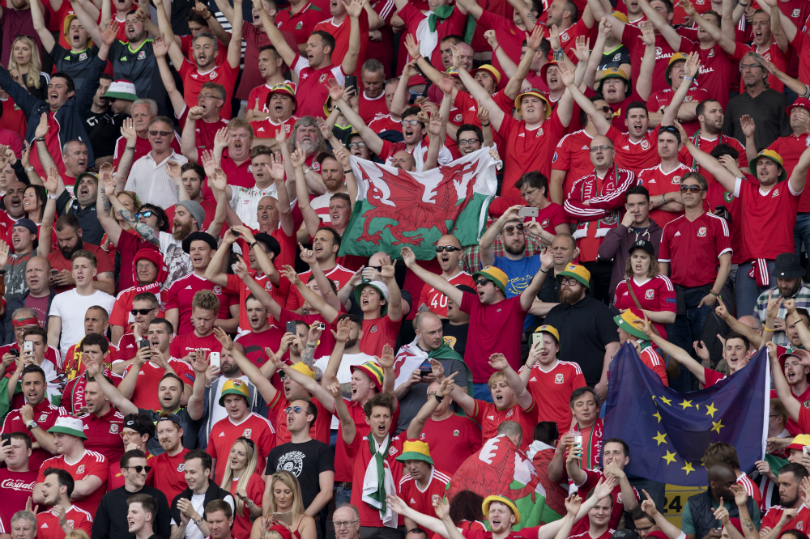
The good news would be lower-league clubs rediscovering their academies, sensing this potential premium on homegrown players. Miles Jacobson is studio director of Sports Interactive, making him ‘Mr Football Manager’, although sadly not by deed poll. He has also made himself an authority on how Brexit may affect British football– even briefing MPs and sporting organisations on the possibilities – and he tells FFT there are certain clubs who are “getting themselves ready” for the aftermath.
“Some smaller clubs see Brexit as a big opportunity,” Jacobson reveals. “Others clubs are being more cagey or – and I worry for these clubs – just ignoring it completely, but some will be happy to stay in their division for the next few years while they invest more in their youth system, as there will be Premier League clubs needing to buy more British players.
“I think the prospects for young footballers in England are better than they’ve been for a long time. Unless there’s a completely soft Brexit with full freedom of movement, it’s highly unlikely that youth players will be able to move over to the UK when they are 16 or 17.”Jacobson’s expertise on Brexit led to it featuring – controversially – in Football Manager itself. “It was totally non-political,” he insists. “We put in every different soft and hard form of Brexit – as well as the possibility that it didn’t end up happening at all. You could have something fairly similar to Champions League squads, where you’re allowed 17 foreign players, so we put that system in there, ranging from three foreign players to 17. Having only three is really difficult.
"We entered a small percentage chance of the Bosman ruling being scrapped entirely, a tiny percentage chance of Scotland declaring independence and then an even smaller percentage chance of Northern Ireland doing the same. The game features hundreds of thousands of possibilities.
Some people believe it was a political statement. Far from it! We covered every scenario.”
And yet…
“Great game… ruined because of Brexit!” began the one-star review of the new release. “When you get midway into season 3 of the game it tells you Britain leaves the EU. Time for celebrations right… wrong. Once this happens you have to get work permits for ALL EU players. This kills the game for me.”
Jacobson laughed then and still laughs now. “He’s saying, ‘Brexit is going to be great, but it’s in Football Manager so it’s ruined my game.’ Well, you voted for something that may damage football in exactly the way it happens in the game."
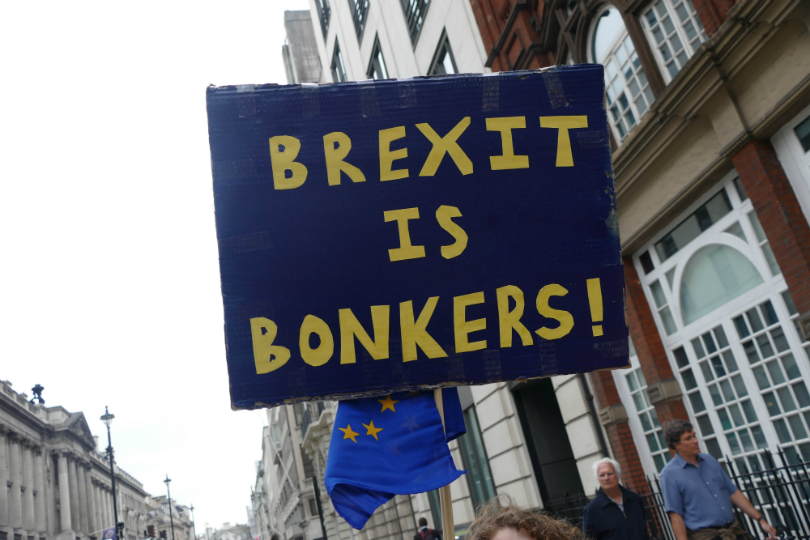
“If people don’t like us putting things that are happening in the real world into the game, then they shouldn’t be playing our game. And at least it was well researched.”
A political hot potato
Footballers could yet be excepted from British work permit law, says Maria Patsalos: “A lot of people are lobbying for ‘carve-out’ – for the football industry, the finance industry, the construction industry or other industries. And if there are indeed carve-outs, the football industry would be in a strong position.” Another possibility that Jacobson added into Football Manager is ‘freedom of movement for entertainers’ – which is based on American law.
While the FA meet up to endorse work permits, there’s an elephant inside this large, yet stuffy meeting room: literally everybody else at a football club
This solution would hardly be popular with a public who demand soldiers have footballers’ wages. “The Government has talked about exemptions for highly-skilled categories,” continues Frank Dunne of SportBusiness Group, “but if footballers are given exemptions while doctors, nurses and other professions are not, politically that would be a hot potato.” You can see all of the tabloid front pages now. The back pages would be much happier, mind.
Besides, it’s not that simple. While the FA meet up to endorse work permits, there’s an elephant inside this large, yet stuffy meeting room: literally everybody else at a football club.
The FA endorses work permits for players, managers (if they have coached one of FIFA’s top 50 nations or in a ‘top league’), assistant managers and even directors of football, but they have to draw a line somewhere. “It wouldn’t just be players under scrutiny,” says Dunne. “I think it’d be all of the technical staff. And if you hire a top foreign coach, he’s bringing his backroom staff.” As Dunne observes, Antonio Conte took seven more Italians to Chelsea.Owen Jones, partner and head of business immigration at Sheridans, tells FFT: “For clubs recruiting physios, data analysts and other roles, Brexit is likely to have a more significant impact. Unless the role’s very well-paid, the club will have to demonstrate that they had advertised the job vacancy and that no suitably-qualified UK national applied.
“Passing this test could be quite hard when there are many UK citizens who are suitably skilled and would love to work in football. There’s no appeals process where a club can argue a certain overseas analyst is better qualified. The system has no opportunity for subjective argument.”
The Premier League vs The FA
The FA sees this as an opportunity for more English players to come through. In purely commercial terms, however, the Premier League is worth more to the economy
While there are FA provisions for ‘performance managers’, which can encompass certain physiotherapy and coaching positions, clubs may have to change their hiring policies. And there is still one final issue jeopardising a smooth footballing Brexit. The FA and Premier League are lobbying the Government hard, but not necessarily for the same outcome.
“Who’s speaking for English football?” Dunne asks. “On this point, the Premier League and the FA have diametrically opposite interests. “The FA sees this as an opportunity for more English players to come through. In purely commercial terms, however, the Premier League is worth more to the economy.”
Geey adds: “The FA have got an inherent incentive to increase the number of English players – and if the FA are no longer subject to EU laws, then there’s nothing to stop them insisting that a team’s FA Cup matchday squad must have five or six Englishmen in it – but then the Premier League will push back massively if, for example, any quotas are put in place on nationality grounds.”
And don’t forget, the Government’s a bit busy. “I sometimes wonder whether football is not that high up on everyone’s priority list,” Geey muses. Raymond Boyle agrees. “If you’re agriculture, the oil industry, pharmaceuticals or whatever, you’re probably higher up the pecking order. I think a sense of perspective, at a time like this, is something that football would do very well to heed.”
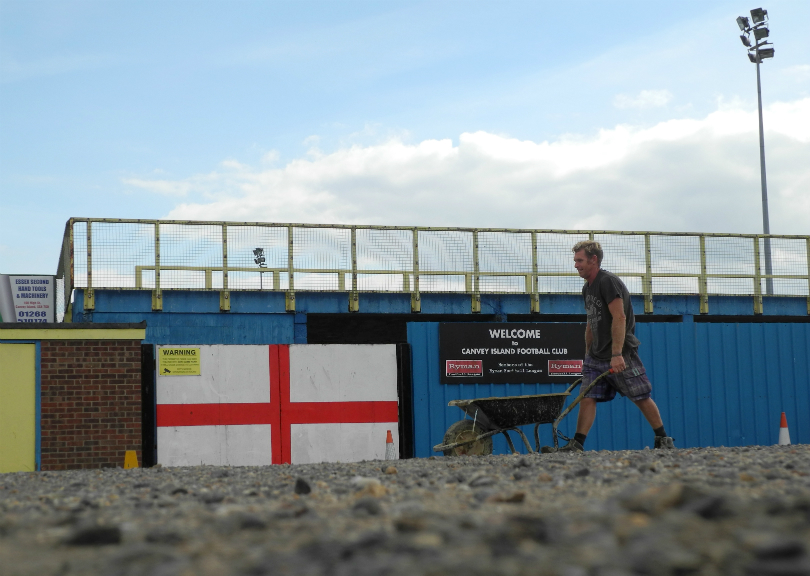
Brexit brings multitudinous possibilities. No one knows exactly what it will do to football, and Dunne isn’t merely doom-mongering when revealing his prediction of “a very negative outcome for the Premier League... unless the Government negotiates an extraordinary deal”.
Whatever happens, nothing is going to be resolved anytime soon. The Economist wrote in April that: “Mrs May now accepts that a trade deal with the EU cannot enter into force before Britain leaves. That means some sort of bridging arrangement will be needed, perhaps lasting for two or three years, during which time Mrs May has hinted that Britain could accept the rules of the single market, including free movement of EU workers.”
Patsalos tells FourFourTwo that while she opposes Brexit, “This is the most exciting time in immigration history for decades. Anything is possible.”
That certainly is exciting – and just a little bit terrifying.
This feature originally appeared in the July 2017 issue of FourFourTwo. Subscribe!
Huw was on the FourFourTwo staff from 2009 to 2015, ultimately as the magazine's Managing Editor, before becoming a freelancer and moving to Wales. As a writer, editor and tragic statto, he still contributes regularly to FFT in print and online, though as a match-going #WalesAway fan, he left a small chunk of his brain on one of many bus journeys across France in 2016.
